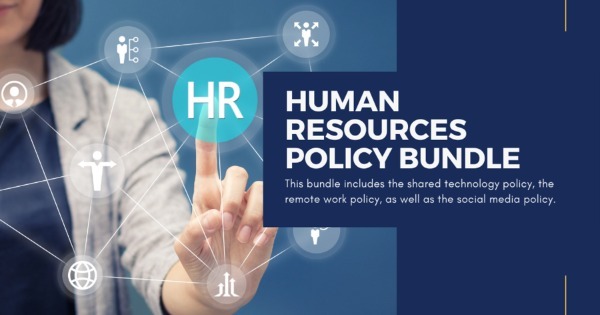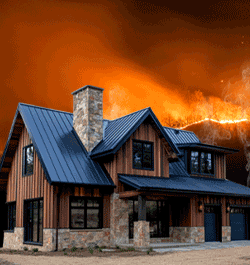New Year’s Legal Resolutions

By Cotney Construction Law.
Did you make personal resolutions for 2021? What about resolutions for your business?
It is a new year, and you likely entered 2021 with a host of resolutions for your personal life. But what about resolutions for your business? Just as you should take stock of yourself, you can benefit from assessing your workplace and making improvements and adjustments. This advice is even more relevant as we continue to maneuver the COVID-19 pandemic.
Update your employee manual
Now is a beneficial time to review your handbook and update policies to reflect the most current labor law and employment developments. For example, your company has probably incorporated changes to paid leave and remote work guidelines, so ensure you revise those in your manual.
Managing employee leave has always been challenging, but the pandemic has made it more complicated. In 2020, the Families First Coronavirus Response Act (FFCRA) mandated paid leave for certain employees diagnosed with COVID-19, those who had to care for family members with COVID-19, or those who had childcare issues while schools or care providers were closed. Those paid-leave requirements expired at the end of 2020, but December’s new coronavirus relief bill extended the paid sick and family leave payroll tax credit through March 31, 2021. So, although you are not required, you still have the option to grant your employees paid leave (and you will receive a tax credit in return). Also, some cities, counties and states adopted broader leave policies that will stay in effect for at least part of the new year, so check the laws in your area. You might not want to include temporary policies in your handbook, but you may opt for incorporating processes to manage the rules while they are in effect.
If you are like many employers, you have had to utilize remote work options during the pandemic. State and local stay-at-home orders prevented many businesses from operating as usual, and employers guarded their workers’ safety by accommodating work-from-home policies. Even as the pandemic abates in the months ahead, remote work options may become permanent for some companies. Review your situation and revise your policy as appropriate. If you plan to encourage in-person operations, you may still need to update your handbook to provide reasonable accommodations per the Americans with Disabilities Act (ADA) and other laws.
Revise your safety manual
Make sure you review the guidelines from state and local agencies—as well as the Centers for Disease Control and Prevention (CDC) and the Occupational Safety and Health Administration (OSHA)—regarding workers’ health and safety during the pandemic. Then revise your safety manual as needed. In all situations, according to the OSHA Act of 1970, you must provide a work environment “free from recognized hazards that are causing or are likely to cause death or serious physical harm.” In addition, OSHA released safety measures specific to COVID-19 for limiting employees’ exposure to the coronavirus.
Depending on your location, you may also need to accommodate varying standards. Some states require more stringent safety protections and ordinances. It is also critical that you emphasize compliance and safety reporting throughout your company, so you are prepared for any employee complaints or litigation.
Revamp your contracts
As the effects of the pandemic unfolded, you likely faced numerous obstacles, such as material shortages and labor inconsistency, in addition to stay-at-home orders and government shutdowns of construction work categorized as “non-essential.” These challenges undoubtedly impacted your contract deadlines.
As you know, most construction contracts have a “time is of the essence” provision, as well as a completion deadline. If you do not meet the completion deadline, you risk your client terminating the contract and refusing to pay you. In addition, project delays can damage your reputation.
However, most construction contracts also include provisions that designate the responsibility for various delays and their impact. A “force majeure” clause refers to delays caused by forces outside your control. The clause falls into two types: one type includes a non-exclusive list of force majeure delay examples, along with “catch-all” language for anything outside your or your client’s control; the other type lists every incident that can be categorized as force majeure.
Make sure that your contracts include a “catch-all” force majeure clause that will protect you from delays you cannot control. Issues related to COVID-19 will generally fit under that umbrella, which can help you avoid contract issues and subsequent litigation. You must also revise your contracts to include clauses regarding suspension or termination of work, and how you will be compensated for such decisions.
Remain nimble
As 2021 unfolds, there may be more changes to regulations and policies, so be prepared to revise your contracts, manuals and other materials as needed. Up-to-date documents not only keep your workers safe and informed, but they also protect your business.
Find out about CCL subscriptions
Contact Cotney Construction Law for additional information.
Disclaimer: The information contained in this article is for general educational information only. This information does not constitute legal advice, is not intended to constitute legal advice, nor should it be relied upon as legal advice for your specific factual pattern or situation.
Cotney Construction Law is an advocate for the roofing industry, General Counsel of the National Roofing Contractors Association (NRCA) and several other industry associations. For more information, contact the author at 866.303.5868 or go to www.cotneycl.com.






















Comments
Leave a Reply
Have an account? Login to leave a comment!
Sign In